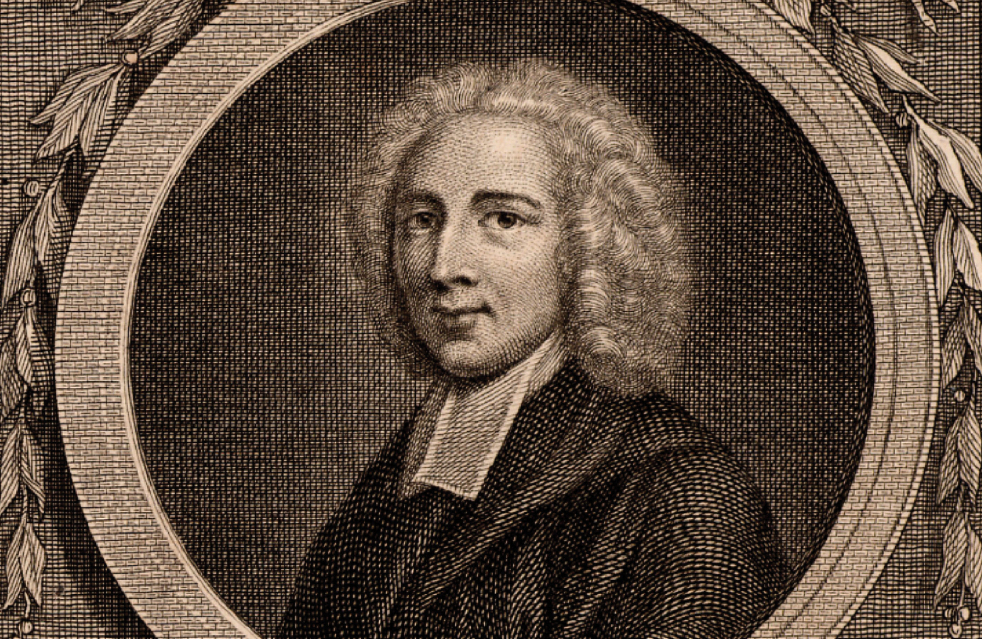By Jewell Johnson
“The singing in this church is dull and lifeless,” a young English man complained after the worship service one Sunday morning.
His father, a deacon, replied, “If you don’t like it, why not give us something better?”
Isaac Watts went home and wrote a poem based on a Bible verse. The next Sunday the verses, set to music, were introduced to the people of his Southampton church. “We like the new way of singing,” they all agreed. For the next two years Isaac wrote a new hymn for every Sunday.
With his verses, he changed congregational worship and began a new era in hymnody. Before 1694 there were no hymns or Gospel songs as we know them today. Only the psalms of the Bible were considered acceptable for public worship. During the church service a clerk read a line of a psalm. The people sang the line, then paused as the clerk droned out the next line. For all 150 psalms only three or four melodies existed, and in most churches each worshipper was free to sing the tune he preferred.
Pastor Isaac Watts
Isaac Watts was born in Southampton, England in 1674. With his mother’s encouragement, he wrote his first poem at age 7. His father, a schoolmaster, taught him Latin, Greek, French, and Hebrew.
Though his appearance was not commanding—fully grown, Isaac stood only five feet tall and was said to have a pale complexion and a thin voice—his academic abilities were exceptional. He was offered scholarships to Oxford and Cambridge. But by attending either university he would have to assent to the Articles of the Church of England. Like his parents, Isaac was determined to cast his lot with the Dissenters, groups that held to pure biblical beliefs.
In 1702 Watts became the senior pastor of Mark Lane Independent Chapel in London. The church prospered under his leadership. He was considered one of the great preachers of the day and contemporaries said his sermons were “weighty and powerful.”
His time at the church was cut short when he began to suffer from attacks of fever. In spite of periods of rest and the congregation’s prayers, the fever persisted and Isaac resigned. Forced into a less public ministry, Watts wrote treatises on theology, catechisms, and textbooks on ethics, psychology, and education. He published a songbook for children that sold seven million copies.
Hymns and a Spiritual Awakening
But today Isaac Watts is not remembered for his books or sermons. He is known as the father of the English hymn. With each of the over 600 hymns he wrote, Watts took a Bible text, arranged it into verse, and set it to music. So loved were his hymns that in some churches worshippers refused to sing if the chosen song was not written by Isaac Watts.
Later a spiritual awakening came to England under John Wesley and George Whitefield and to America through Jonathan Edwards. But the way was paved by the sacred hymn, many written by Isaac Watts.
One of Watts’s biographers said, “Great hymns have been written since the time of Isaac Watts, but it is doubtful that such a hymn as ‘When I Survey the Wondrous Cross’ could possibly be surpassed.” Other hymns by Watts that remain popular today are “Joy to the World,” “Alas! And Did My Savior Bleed,” “Am I a Soldier of the Cross?”, and “O, God Our Help in Ages Past.”
Three hundred years after his death, worshippers the world around continue to sing the hymns written by Isaac Watts—the boy who believed he could, with verse, make the singing of God’s praises a joyful, soul-stirring experience.
Jewell Johnson is from Arizona and likes writing, reading, walking, and quilting.



Comments: no replies